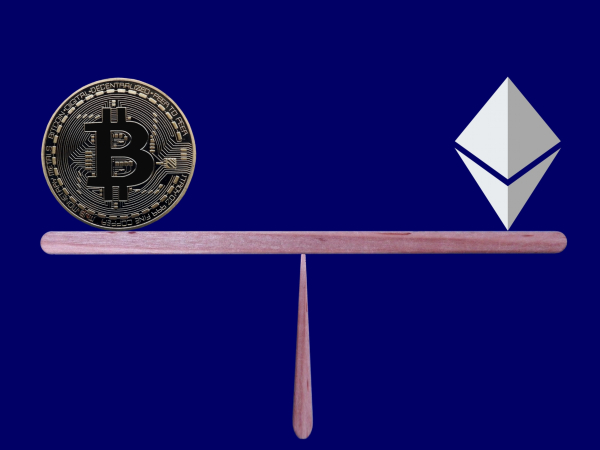To date, Bitcoin and Ethereum are two cryptocurrencies that are well-known by all the active users within the ecosystem.
Yet, despite the known differences in terms of blockchain, structure and focus, the idea of being able to see them at the top of crypto ranking over time may suggest that btc can be compared to ether, perhaps in the context of connection, competition or even replaceability.
In general, unlike Sidechains that are born with the idea of improving the blockchain to which they refer without creating a new monetary effect, a new blockchain creates instead a real cryptocurrency that, once listed, enters the scenario of a financial or speculative competition with the first crypto par excellence, bitcoin.
The Ethereum blockchain, as well as all the others, are born with the aim of improving or differentiating from the peer-to-peer model designed by Satoshi Nakamoto.
The first link between the two technologies could be the very fact that Vitalik Buterin, the Russian programmer and founder of Ethereum, followed Bitcoin by writing articles for a blog before deciding to implement his ideas, which were initially designed to improve the bitcoin platform.
Are Ethereum and Bitcoin linked?
The success of Ethereum refers mostly to the possibility of being able to create dApps through the use of smart contracts.
At the beginning in fact, ether, unlike other cryptocurrencies in close connection with bitcoin on the subject of scalability, was designed as fuel for the virtual machine and not as a cryptocurrency for payments.
Yet, the very concept of smart contracts, which offer the possibility of setting conditions to contracts, are still transactions.
It is no coincidence that many define ether programmable money while bitcoin digital gold or store of value.
In addition, over time, the products of the platform, including tokens based on Ethereum technology, have also assumed a monetary value, being listed on trading platforms. Therefore, this initial “fuel” has certainly evolved into something different and has acquired more and more financial importance.

Bitcoin vs Ethereum, pros and cons
Another aspect to consider of the two cryptocurrencies refers to the characteristics related to the structure.
While Bitcoin’s blockchain is fully decentralised, i.e. it has no owner and the community participates in the network through consent, Ethereum has a real foundation that manages it.
If on the one hand, for many, the existence of a foundation is a positive factor because it speeds up and directs development processes compared to the system of distributed consensus that is slow and complex, on the other, many others consider it a negative factor because it can adopt its own policies or change the rules by centralising the Ethereum platform.
In fact, recently there was talk about the infrastructure of the Ethereum network Infura, managed by the company ConsenSys, which is totally centralised.
Bitcoin vs Ethereum. Who wins?
Despite the comparison, the digital gold does not have any competitors at the moment, due to the fact that being able to reproduce another decentralised blockchain like bitcoin, with a neutral, non-political and incensurable cryptocurrency is a virtually impossible task, especially at a time when interest in the sector has reached the peaks that we are experiencing.
Unlike Ethereum and the subsequent crypto projects, the bitcoin blockchain has seen a widespread and homogeneous spread, without players who could take control of the network.




